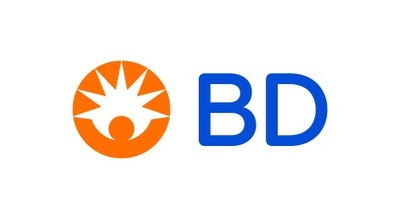Women in U.S. Can Now Collect Their Own Sample for Cervical Cancer Screening
Rhea-AI Summary
On May 15, 2024, BD (Becton, Dickinson and Company) announced FDA approval for the use of self-collected vaginal specimens for HPV testing when cervical specimens cannot be obtained. This approval allows women to collect samples in various healthcare settings, including non-traditional locales like retail pharmacies and mobile clinics. The BD Onclarity™ HPV Assay, which doesn't require a traditional Pap smear, enhances access to cervical cancer screening, particularly for underserved populations. Around 25% of U.S. women do not receive regular cervical cancer screenings, with higher rates of cervical cancer among Black, Hispanic, and American Indian women. This initiative aims to increase screening acceptance and participation, offering a significant advancement in cervical cancer prevention.
Positive
- FDA approval for self-collected HPV testing enhances accessibility and convenience.
- BD Onclarity™ HPV Assay does not require a traditional Pap smear, reducing discomfort.
- Self-collection can improve screening uptake, especially in underserved populations.
- Self-collection offers a less invasive and more comfortable option for women.
- BD's partnership with NIH's Cervical Cancer 'Last Mile' Initiative aims to reduce screening disparities.
- BD Onclarity™ Assay reports six HPV strains individually for precise risk assessment.
Negative
- Potential risk of inaccurate self-collected samples impacting test results.
- Higher operational costs may arise from the need to support non-traditional testing locations.
- Initial skepticism from healthcare providers and patients regarding the efficacy of self-collected samples.
News Market Reaction – BDX
On the day this news was published, BDX gained 0.97%, reflecting a mild positive market reaction.
Data tracked by StockTitan Argus on the day of publication.
HPV is the cause of virtually all cervical cancer, and HPV testing is the preferred screening method by the American Cancer Society in
"Many patients are uncomfortable with the intimate nature of a pelvic exam," said Dr. Jeff Andrews, board-certified gynecologist and vice president of Global Medical Affairs for Diagnostic Solutions at BD. "Also, many people live in areas without a local doctor or clinician trained to obtain a sample with a speculum. The option to self-collect in a clinical setting can help women overcome some of these barriers."
Cervical Cancer is Preventable
Cervical cancer is preventable, and screening plays a crucial role in early detection and prevention. According to the American Cancer Society, approximately
Various factors contribute to inadequate screening, including physical and geographic inaccessibility, financial insecurity (including lack of health insurance coverage), lack of awareness about the importance of screening, social or religious preferences, physical disability, medical conditions, or history of sexual, physical or psychological abuse that may make a pelvic examination for sample collection by a clinician traumatizing.
Self-Collection Improves Access
Self-collection can improve cervical cancer screening access, especially in underserved populations. In the
The National Cancer Institute (NCI), part of the National Institutes of Health (NIH), has been working with BD in a public-private partnership called the Cervical Cancer "Last Mile" Initiative to address disparities in cervical cancer screening. As part of this initiative, BD will be a participant in the Self-collection of HPV testing to Improve Cervical Cancer Prevention (SHIP) trial, which will begin enrolling this summer, to evaluate accuracy of self-collection for HPV testing both in health care and other settings, including at home.
Some HPV Strains Carry a Higher Risk than Others
There are many strains (genotypes) of HPV viruses, with some strains posing a much higher risk for causing precancer and cancer than others. BD Onclarity™ is the first FDA-approved assay that reports six HPV strains individually, providing a more precise, accurate way to measure a women's risk for developing cervical precancer by showing results for an extended set of individual HPV strains and enabling those strains to be tracked over time. Most clinically validated tests report multiple strains in a single pooled result that prohibits monitoring of specific strains over time, which is an important determinant of cervical cancer risk in women who test positive for HPV.
"The integration of self-collection with testing for individualized strains of HPV represents a significant advancement in cervical cancer screening," said Dr. Shieva Ghofrany, a practicing OB-GYN and Fellow of the American Congress of Obstetricians and Gynecologists. "Self-collection provides greater access to testing and BD Onclarity™ allows health care providers to determine the specific HPV strains present in the samples and more precisely identify and treat individuals at high-risk and avoid unnecessary treatments for women at low risk."
About BD
BD is one of the largest global medical technology companies in the world and is advancing the world of health by improving medical discovery, diagnostics and the delivery of care. The company supports the heroes on the frontlines of health care by developing innovative technology, services and solutions that help advance both clinical therapy for patients and clinical process for health care providers. BD and its more than 70,000 employees have a passion and commitment to help enhance the safety and efficiency of clinicians' care delivery process, enable laboratory scientists to accurately detect disease and advance researchers' capabilities to develop the next generation of diagnostics and therapeutics. BD has a presence in virtually every country and partners with organizations around the world to address some of the most challenging global health issues. By working in close collaboration with customers, BD can help enhance outcomes, lower costs, increase efficiencies, improve safety and expand access to health care. For more information on BD, please visit bd.com or connect with us on LinkedIn at www.linkedin.com/company/bd1/, X (formerly Twitter) @BDandCo or Instagram @becton_dickinson.
Contacts:
Media: | Investors: |
Troy Kirkpatrick | Adam Reiffe |
VP, Public Relations | Sr. Director, Investor Relations |
858.617.2361 | 201.847.6927 |
1 MacDonald EJ, Geller S, Sibanda N, et al. Reaching under–screened/never–screened indigenous peoples with human papilloma virus self–testing: A community–based cluster randomised controlled trial.
2 Australian and New Zealand Journal of Obstetrics and Gynaecology. 2020;61(1):135-141. doi:https://doi.org/10.1111/ajo.13285
![]() View original content to download multimedia:https://www.prnewswire.com/news-releases/women-in-us-can-now-collect-their-own-sample-for-cervical-cancer-screening-302145620.html
View original content to download multimedia:https://www.prnewswire.com/news-releases/women-in-us-can-now-collect-their-own-sample-for-cervical-cancer-screening-302145620.html
SOURCE BD (Becton, Dickinson and Company)









